Events
| Name | organizer | Where |
|---|---|---|
| MBCC “Doing Business with Mongolia seminar and Christmas Receptiom” Dec 10. 2025 London UK | MBCCI | London UK Goodman LLC |
NEWS
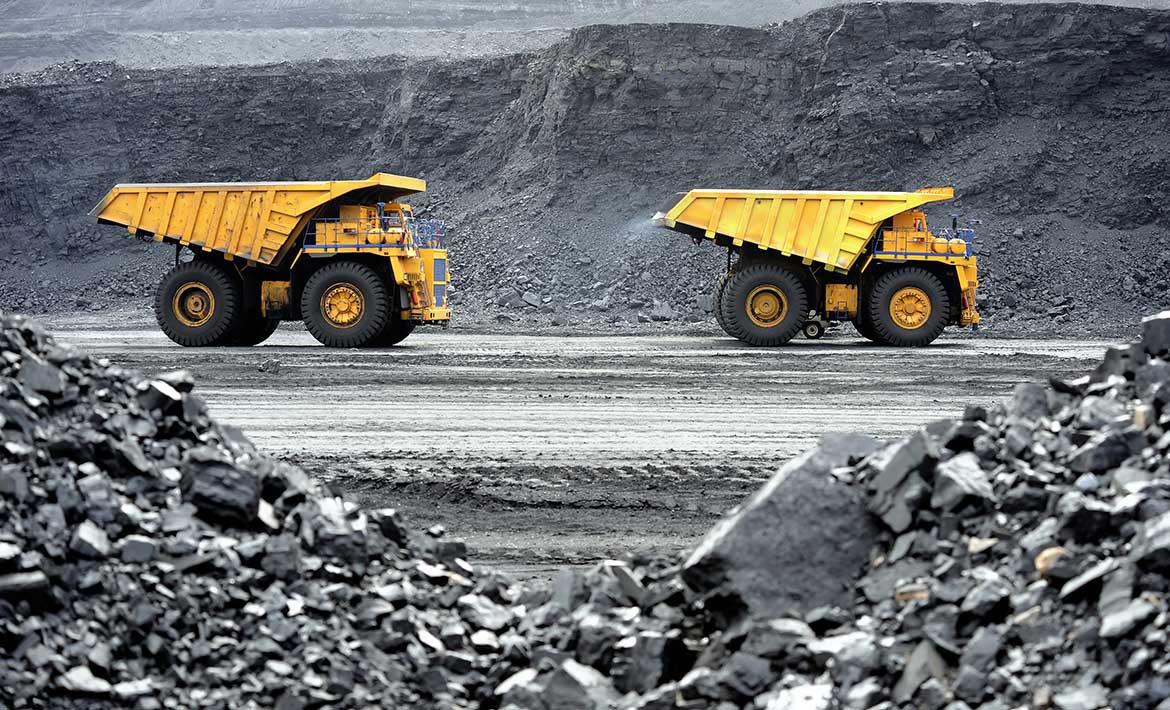
Prime Minister visits Bor-Undur fluorspar mine www.montsame.mn
Ulaanbaatar /MONTSAME/. Prime Minister U.Khurelsukh is working in some aimags these days. During his working trip to Bor-Undur soum of Khentii aimag, PM U.Khurelsukh visited the mine site of Bor – Undur Mine and Ore Dressing Plant.
Mongolrostsvetmet LLC exploits fluorspar ore from the Bor-Undur underground mine in 200 meters below ground and Khukh Del /Tuv ungent and Zuun unegt/ open pit mine. The fluorspar ore from these mines are processed in the Bor-Undur ore dressing plant and produce fluorspar acid concentrate and metallurgical concentrate as final products. The Bor-Undur concentration plant is considered to be the largest fluorspar concentrate processing plant in Mongolia, as reported by the Mongolrostsvetmet LLC.
With daily extraction capacity of around 390 tons of fluorspar ore, which totals 300 thousand of ore annually, the Bor-Undur mine plant has resumed its exploration activities in 2017, which was halted for more than two years, and made some upgrades in its technology and equipment.
The fluorspar content of the Bor-Undur mine is currently 26.76 percent and the concentration processing increases the recovery up to 90-95 percent. With current capacity, the Bor-Undur mine has the potential to operate another three years from its known deposits.
During the PM’s visit to the mine, specialists pointed out that once the technical and economic feasibility is approved of the Zuun Tsagaan Del’ fluorite deposit, whose license is held by Mongolrostsvetmet LLC, the mine exploration potential is estimated to be around 10-15 years. The deposit is located in Ikh-Khet soum of Dornogobi aimag, covers 141.8 hectares.
The Cabinet Secretariat of Government of Mongolia also reported that the profits of Bor-Undur mine totaled MNT 34 billion last year.
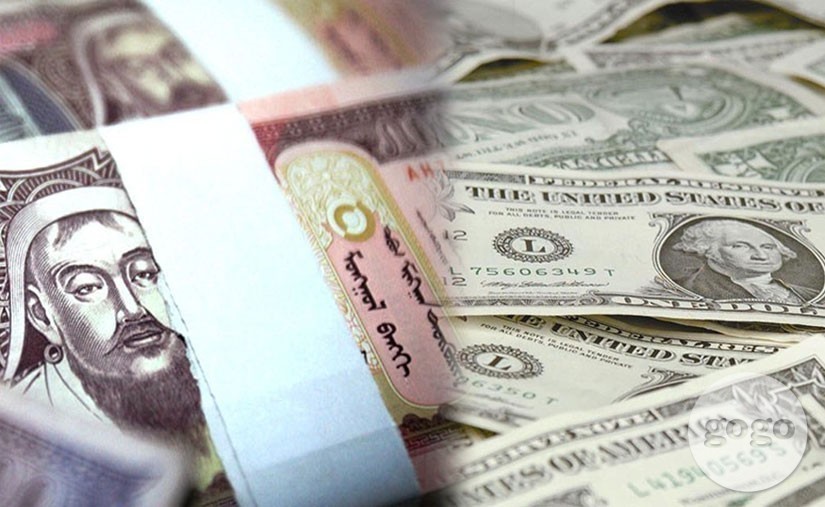
Yuan rate against tugrik mounts since last year www.zgm.mn
The CNY rate against Mongolian tugrik has been strengthening since 2019. According to the official rate announced by the Bank of Mongolia (BoM), yuan stood at MNT 398.51 on Wednesday. China has a bigger impact on Mongolia’s foreign trade. The South neighbor of Mongolia has reduced its yuan rate to decrease trade deficits and thus support exports. Particularly, China pursued monetary policies to overcome the trade dispute with the United States at a low cost.The yuan rate has relatively increased by MNT 13 over the past three months. In the meantime. Mongolia is planning to increase its trade turnover with China to USD 10 billion this year. However, if the yuan is still unstable, Mongolia may see a slight loss further. Domestic demand of China, which consumes half of the global commodity supply, had lightly weakened. At the same time, the People’s Bank of China has reduced the required amount of commercial banking stocks and expanded the cash flow to market to mitigate its economic slowdown. This has created inexpensive sources to support the business and provided up to USD 115 billion from its banking system.
...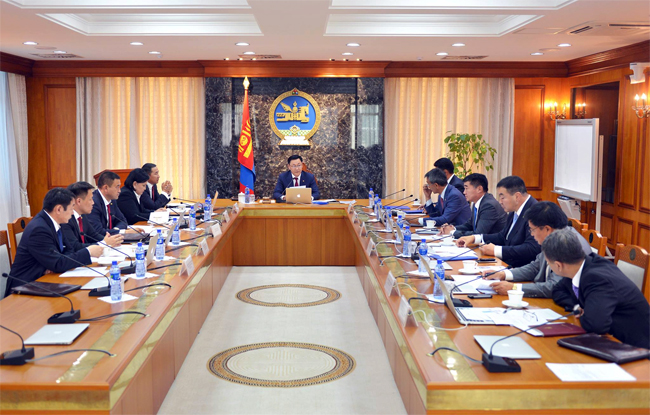
Unenbat: Government should not interfere with commercial banks’ activity www.zgm.mn
Executive Director of Mongolian Bankers Association, Unenbat Jigjid gave an interview to discuss the recent decision of the Government to repay pension loans up to MNT six billion and its effect on the economy. He also named the fiscal discipline as one of the main aspects that can define the 2020 outlook.
-According to the National Statistics Office, the volume of a hidden economy has slightly dropped from the previous year. What is the effect of the informal economy on the Mongolian economy?
-For Mongolia, the hidden economy result is relatively good, equaling about 10 percent of GDP. And it is doubtful that this volume is less than expected.
-Parliament had recently approved a bill on canceling a one-time repayment of pension loans. What is the commercial banks’ verdict on the decision?
-As for the commercial banks, they have no right to make a decision, but to serve in line with the regulations. However, as far as I’m concerned, canceling debt is an inappropriate action of the Government, interfering with the commercial banks’ transaction. It also creates a high expectation among people which can lead to negative consequences. To some extent, it is discrimination
against different social classes.
-What are the main economic challenges in 2020?
-Undoubtedly, the recent rise in mineral product prices and its export in the global market have been spurring Mongolia’s economy in recent years. It shows the country’s dependence on commodity prices. Also, the fiscal discipline, which indicates any country’s economic outlook, is likely to be violated in 2020.
-IMF had stated that the debt canceling plan is violating the 2017 bailout deal. How will the cooperation between the IMF and Mongolia proceed further?
-Well, the uncertain situation has been made following the IMF statement. It is hard for me to comment on behalf of the Mongolian side. But in terms of fiscal discipline, the potential budget cost needs to be as low as possible.
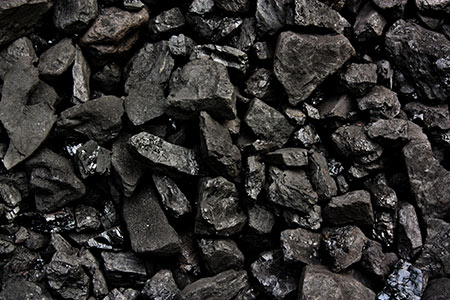
China remains top destination for Mongolia exports in 2019 www.xinhuanet.com
China remained the top export destination for Mongolia's goods in 2019, an economic statistician at the Mongolian National Statistics Office reported Thursday.
"China ranked first with a market share of 89.1 percent of Mongolia's total exports in 2019," Dorjdamba Baasan said during a news conference.
"Goods exported from Mongolia to China last year were mostly led by mining products. Specifically, coal and copper concentrates accounted for 44.4 percent and 26.4 percent of the total exports to China, respectively," he said.
Mongolia's exports amounted to 7.6 billion U.S. dollars last year, up 8.7 percent year on year, according to the statistician. Enditem

Facebook to open Mongolian ‘War Room’ www.news.mn
Social media giant Facebook will set up a ‘war room’ to counter misinformation and interference in in the upcoming Mongolian parliamentary election scheduled for June 2020.
With support from its US and Irish HQ’s, Facebook will provide 24-hour monitoring of content – including posts and advertising, using AI to identify and delete fake accounts.
Mongolia has banned candidates from distributing money and other ‘incentives’ to the voters. In addition, candidates have been banned from defaming others during the election campaign. Candidates face expulsion from nomination if these rules are proved to have been violated.
Candidates must register their social accounts with the Communications Regulatory Commission of Mongolia (CRC). The CRC is expected to actively cooperate with Facebook company during the election.
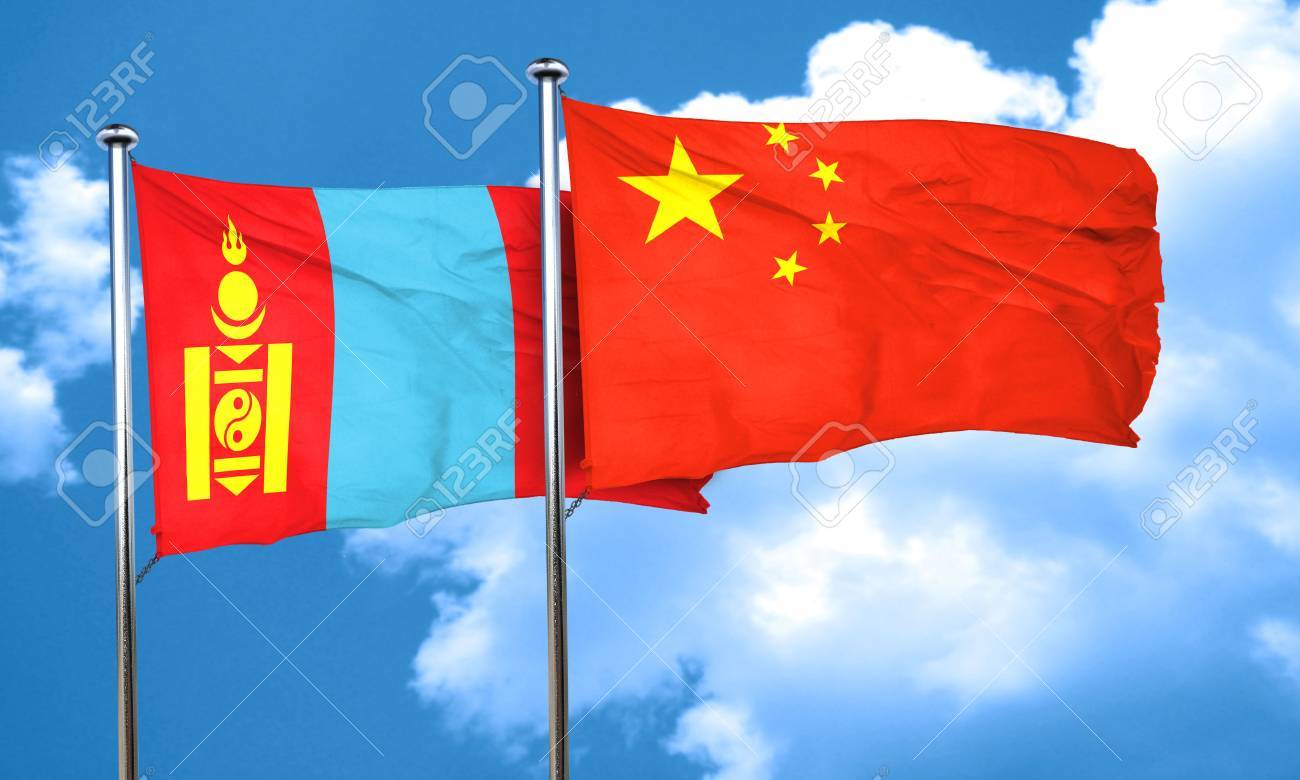
Mongolia’s Free Economic Zone on China’s doorstep www.news.mn
An investment forum entitled ‘The Connection between the Free Economic Zone and the Economic Corridor’ was held today (16 January) at the Mongolian National Chamber of Commerce and Industry. At the event, Mongolia’s policies on transport and logistics and the role and significance of the free zones were discussed. To date, Mongolia has invested a total of USD 58.8 million on construction at the site of the Zamyn-Uud Free Economic Zone (FEZ). However, so far, the Mongolian parliament has still not yet approved an intergovernmental agreement for establishing this FEZ.
Deputy Speaker U.Enkhtuvshin, said that the ‘Zamyn-Uud FEZ was first discussed in 1995, the law regulating its activity was approved in 2002 and amended in 2015. However, it has not been finalized due political uncertainty. Over the years, there have been concerns about some of China’s intentions; on one occasion Mongolian women MP’s were concerned about Beijing’s idea of to set up a gaming and casino centre in the zone and the local impact. It should be remembered, however, that China’s economic miracle, under Deng Xiaoping, the establishment of a chain of FEZ’s provided a major stimulus for growth. China has also been keen to show Mongolian specialists its mega zone in Shenzhen. The Zamyn-Uud FEZ has often been discussed in the context of establishing an Economic Corridor between Mongolia, Russia and China’.
Currently, 58 enterprises have obtained licenses to implement nearly 70 projects in Zamyn-Uud FEZ; ten of them are already under construction. The Free Economic Zones in Mongolia are expected to contribute 20-40 percent to Mongolian GDP.

Mongolian carriers become able to make transport to 16 countries www.montsame.mn
Ulaanbaatar /MONTSAME/ As a result of active work of the Ministry of Road and Transport for developing international road transport relations with European Union member states, conditions created to make transport with 16 countries, exchanging a letter of consent on conducting transportation.
The countries are the Russian Federation, China, Kazakhstan, Kyrgyzstan, Ukraine, the Democratic People’s Republic of Korea, Belarus, Latvia, Hungary, Turkey, Lithuania, Poland, Germany, Czech Republic, Georgia and Slovak.
Thanks to the agreement, Mongolian carriers have conducted 13.3 percent of total TIR transport, which is being made from European countries to Mongolia, in 2018, which was just one percent in 2016. Moreover, Intergovernmental Agreement on International Road Transport along the Asian Highway Network was established in 2016 within a program on establishment of Mongolia-China-Russia Economic Corridor. The agreement came into effect from July, 2019.
“The agreement is very significant for our land-locked country and since it is the closest way of transit transport to be conducted between Asia and Europe, it will make huge contribution to the country’s economy,” said G.Gantulga, Acting Head of Road Transport Policy Implementation and Coordination Department of the Ministry of Road and Transport.
In frames of the agreement, Mongolian carriers began performing transport by road from the Russian Federation to Tianjin border crossing passing through the territory of China. In particular, ‘Montrans auto’ LLC has successfully made the first trial transport. In addition, four vehicles of ‘Tuushin’ LLC have successfully operated transportation using TIR carnage from Irkutsk, Russia to China’s Tianjin border crossing at the beginning of January this year.
“As reflected in the Intergovernmental Agreement on International Road Transport along the Asian Highway (AH) Network, it is possible to carry out transportation along AH-3 Asian Highway network or from Ulan-Ude city of the Russian Federation to China’s Tianjin border crossing passing through Ulaanbaatar city and along AH-4 or from Novosibirsk, Russia to Honqiraf border crossing of China passing through Bayan-Ulgii and Khovd aimags” said G.Dorjpalam, Head of Transport Coordination Department of National Road Transport Center. In other words, it enabled Mongolian carriers to make transit transport along two highways that connected with Asian Highway Network. Transportation along west corridor is expected to commence at the end of 2020.
Customs accredited carriers, who have vehicle that meet the Euro-4 and higher ecological standards in accordance with the requirements in the territory of China, are fully available to carry out transport within the agreement. Aside from the intergovernmental agreement, a protocol, which was established with the Chinese Ministry of Transport on implementation of Intergovernmental Agreement between Mongolia and China on road transport, was renewed in 2019 in order to facilitate international trade and transportation. The protocol entered into force from January 1, 2020 and it allows transporting oversized, dangerous loading, which are unavailable to translocate, by truck with trailer that was registered in China.
...
Rio Tinto’s full-year iron ore shipments drop on disruptions from cyclone and fire www.reuters.com
Rio Tinto on Friday posted a 3% drop in iron ore shipments in 2019 as the Anglo-Australian miner’s operations faced disruptions due to cyclone and a fire at a port facility.
Iron ore shipped from Australia’s Pilbara region in 2019 was 327.4 million tonnes, the company said, well within its forecast of 320 million tonnes to 330 million tonnes.
The company said it made up for the disruptions in the first half by way of higher iron ore production and shipments than a year earlier. However, in the fourth-quarter, shipments of the steel-making material dipped 1% to 86.8 million tonnes.
The global miner has benefited from a jump in iron ore prices following a supply squeeze due to a fatal dam collapse in Brazil early last year. But with global production now stabilizing, the prices are off their highs.
The company expects iron ore shipments, which accounts for more than 60% of its profit, to be between 330 million tonnes and 343 million tonnes in 2020.
Rio Tinto has been shipping out higher volumes of a lower grade, 60 percent SP 10 product, as it struggles with operational bottlenecks at its new Koodaideri mine in Western Australia, from where it expects to produce ore in late 2021.
The London-based miner posted a 28% jump in bauxite production in 2019 and said it expected aluminium production to be between 3.1 million tonnes and 3.3 million tonnes in 2020.
It also set 2020 target of 530,000 to 580,000 tonnes of mined copper.

Russian government resigns as Vladimir Putin plans future www.bbc.com
Russia's government has resigned, hours after President Vladimir Putin proposed sweeping constitutional changes that could prolong his stay in power.
If approved by the public, the proposals would transfer power from the presidency to parliament.
Mr Putin is due to step down in 2024 when his fourth term of office comes to an end.
But there is speculation he could seek a new role or hold on to power behind the scenes.
Mr Putin put forward his plans in his annual state of the nation address to lawmakers. Later, in an unexpected move, Prime Minister Dmitry Medvedev announced that the government was resigning to help facilitate the changes.
Russian government sources told the BBC that ministers did not know about the government's resignation ahead of the announcement.
"It was a complete surprise," one source said.
What is Mr Putin proposing?
The Russian leader said during a speech to both chambers of parliament that there would be a nationwide vote on changes that would shift power from the presidency to parliament.
Constitutional reforms included giving the lower house of parliament, the State Duma, "greater responsibility" for the appointment of the prime minister and the cabinet.
Vladimir Putin: Russia's action man president
Currently, the president appoints the prime minister, and the Duma approves the decision.
Mr Putin also suggested an increased role for an advisory body called the State Council. The council, which is currently chaired by Mr Putin, comprises the heads of Russia's federal regions. Mr Putin said it had proved to be "highly effective".
"These changes, when they are adopted... will introduce substantial changes not only to an entire range of articles of the constitution, but also to the entire balance of power, the power of the executive, the power of the legislature, the power of judiciary," Mr Medvedev said of Mr Putin's proposals.
"In this context... the government in its current form has resigned."
Mr Putin thanked Mr Medvedev for his work but said "not everything" had been accomplished.
He asked Mr Medvedev to become deputy head of the National Security Council, which is chaired by Mr Putin.
The president later nominated tax service chief Mikhail Mishustin to replace Mr Medvedev as prime minister.
Mr Medvedev has been prime minister for several years. He previously served as president from 2008-2012, switching roles with Mr Putin - a close ally - after the latter served his first two terms as president. Russia's constitution only allows presidents to serve two consecutive terms.
Even when he was prime minister, Mr Putin was widely seen as the power behind then President Medvedev.
Opposition leader and leading Kremlin critic Alexei Navalny said he believed that any referendum on the constitutional changes would be "fraudulent crap". He said Mr Putin's goal was to be "sole leader for life".
The last time Russia held a referendum was in 1993 when it adopted the constitution under President Boris Yeltsin, Mr Putin's predecessor.
Mr Putin became acting president following Mr Yeltsin's resignation in 1999 and was formally inaugurated a year later. He has held the reins of power - as president or prime minister - ever since.
Part of Putin's bigger plan?
President Putin likes stability. It's his thing. So the newsflash that the entire government had resigned was a big surprise. From the online chatter, it seems even the cabinet ministers didn't see it coming. For a moment it was like a flashback to Russia of the 1990s, when President Yeltsin changed prime ministers as readily as his socks. Vladimir Putin is no Yeltsin, though, and this move looks like part of some bigger plan that's all about consolidating - and extending - his hold on power.
Under the current rules, Mr Putin must step down as president in 2024 and it's never been clear what he'd do next. That's still true. But the constitutional tweaks he's proposed are hints at some options. He's bumped up the status of the little-known State Council, which he already heads. Or he could become PM again, now he's slightly weakened the powers of Russia's president.
If he is sticking around, perhaps he needs to make that palatable to people given all the social and economic problems he had to list once again in his annual address to the nation. If Mr Putin were to blame for their woes, Russians might well wonder why they should swallow him staying on, post-2024. Dmitry Medvedev - so often useful to Mr Putin - for now looks like a handy scapegoat.
What else did Mr Putin say?
In his address to parliament, the president unveiled a series of plans to increase the number of children being born in Russia. Like several Eastern European states, Russia has been struggling with a declining birth rate.
Last year Mr Putin promised tax breaks for bigger families.
On Wednesday he pledged state funding for new mothers in a bid to increase the number of children being born from an average of fewer than 1.5 per woman to 1.7 within four years.
So-called "maternity capital" has until now only been paid to families with at least two children.
Welfare benefits will also be paid for children aged three to seven in low-income families, and free school meals will be provided for the first four years of school.
Russia's population has struggled to recover from a dramatic decline in the 1990s.
Related Topics
...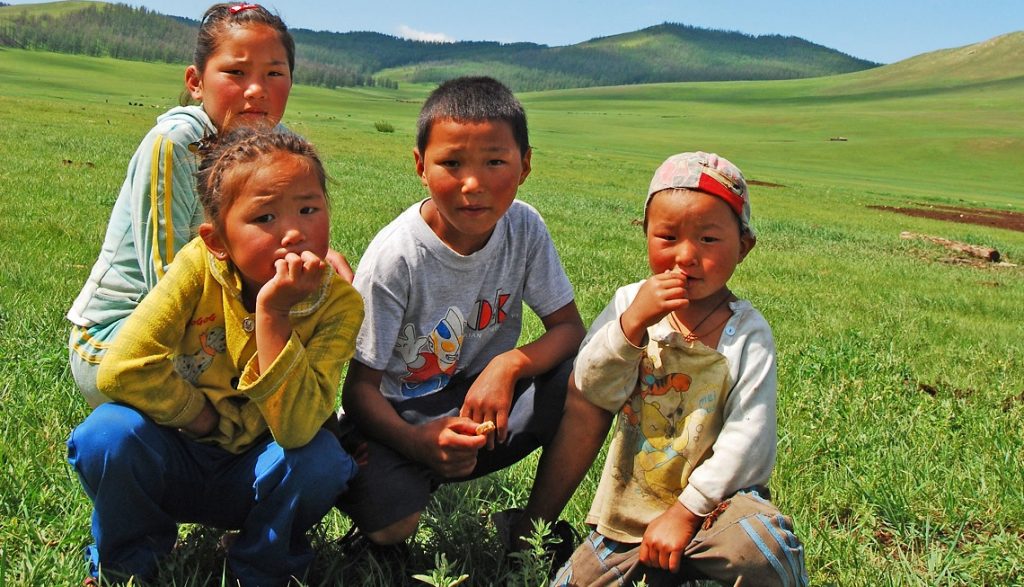
Mongolia named as one of the places to go in 2020 www.montsame.mn
Ulaanbaatar /MONTSAME/ The New York Times made a list of 52 places to go in 2020. Mongolia has been named in the 47th of the list and it mentioned reasons for travel, landscape features and ongoing measures to boost tourism. It wrote:
It might be hard to imagine this sparsely populated country becoming spoiled — but its tourist numbers are on the rise, and so is its infrastructure. Last year Mongolia attracted 530,000 tourists, up from 150,000 in 2000. Ulaanbaatar, the capital, is opening a new airport, scheduled for completion by the end of May. Financed by the Japanese government, it will accommodate triple the passengers of the current one. More direct routes from Asian destinations are expected, too. Today, Mongolia has more than 400 travel companies, 300 hotels and 600 resorts and tourist camps. The government is giving tax breaks to companies building hotels and has abolished licenses for tourism businesses. It even has a tourism slogan: “Mongolia — Nomadic by Nature.” Some popular activities include trekking, climbing, birding, horseback riding, camel trekking and yak caravans. Nearly every travel company includes the Gobi Desert on its itinerary. One great cultural event is the Naadam sports festival held in July. It includes Mongolia’s three most popular sports: Mongolian wrestling, archery and long-distance horseracing.
- «
- 1
- 2
- 3
- 4
- 5
- 6
- 7
- 8
- 9
- 10
- 11
- 12
- 13
- 14
- 15
- 16
- 17
- 18
- 19
- 20
- 21
- 22
- 23
- 24
- 25
- 26
- 27
- 28
- 29
- 30
- 31
- 32
- 33
- 34
- 35
- 36
- 37
- 38
- 39
- 40
- 41
- 42
- 43
- 44
- 45
- 46
- 47
- 48
- 49
- 50
- 51
- 52
- 53
- 54
- 55
- 56
- 57
- 58
- 59
- 60
- 61
- 62
- 63
- 64
- 65
- 66
- 67
- 68
- 69
- 70
- 71
- 72
- 73
- 74
- 75
- 76
- 77
- 78
- 79
- 80
- 81
- 82
- 83
- 84
- 85
- 86
- 87
- 88
- 89
- 90
- 91
- 92
- 93
- 94
- 95
- 96
- 97
- 98
- 99
- 100
- 101
- 102
- 103
- 104
- 105
- 106
- 107
- 108
- 109
- 110
- 111
- 112
- 113
- 114
- 115
- 116
- 117
- 118
- 119
- 120
- 121
- 122
- 123
- 124
- 125
- 126
- 127
- 128
- 129
- 130
- 131
- 132
- 133
- 134
- 135
- 136
- 137
- 138
- 139
- 140
- 141
- 142
- 143
- 144
- 145
- 146
- 147
- 148
- 149
- 150
- 151
- 152
- 153
- 154
- 155
- 156
- 157
- 158
- 159
- 160
- 161
- 162
- 163
- 164
- 165
- 166
- 167
- 168
- 169
- 170
- 171
- 172
- 173
- 174
- 175
- 176
- 177
- 178
- 179
- 180
- 181
- 182
- 183
- 184
- 185
- 186
- 187
- 188
- 189
- 190
- 191
- 192
- 193
- 194
- 195
- 196
- 197
- 198
- 199
- 200
- 201
- 202
- 203
- 204
- 205
- 206
- 207
- 208
- 209
- 210
- 211
- 212
- 213
- 214
- 215
- 216
- 217
- 218
- 219
- 220
- 221
- 222
- 223
- 224
- 225
- 226
- 227
- 228
- 229
- 230
- 231
- 232
- 233
- 234
- 235
- 236
- 237
- 238
- 239
- 240
- 241
- 242
- 243
- 244
- 245
- 246
- 247
- 248
- 249
- 250
- 251
- 252
- 253
- 254
- 255
- 256
- 257
- 258
- 259
- 260
- 261
- 262
- 263
- 264
- 265
- 266
- 267
- 268
- 269
- 270
- 271
- 272
- 273
- 274
- 275
- 276
- 277
- 278
- 279
- 280
- 281
- 282
- 283
- 284
- 285
- 286
- 287
- 288
- 289
- 290
- 291
- 292
- 293
- 294
- 295
- 296
- 297
- 298
- 299
- 300
- 301
- 302
- 303
- 304
- 305
- 306
- 307
- 308
- 309
- 310
- 311
- 312
- 313
- 314
- 315
- 316
- 317
- 318
- 319
- 320
- 321
- 322
- 323
- 324
- 325
- 326
- 327
- 328
- 329
- 330
- 331
- 332
- 333
- 334
- 335
- 336
- 337
- 338
- 339
- 340
- 341
- 342
- 343
- 344
- 345
- 346
- 347
- 348
- 349
- 350
- 351
- 352
- 353
- 354
- 355
- 356
- 357
- 358
- 359
- 360
- 361
- 362
- 363
- 364
- 365
- 366
- 367
- 368
- 369
- 370
- 371
- 372
- 373
- 374
- 375
- 376
- 377
- 378
- 379
- 380
- 381
- 382
- 383
- 384
- 385
- 386
- 387
- 388
- 389
- 390
- 391
- 392
- 393
- 394
- 395
- 396
- 397
- 398
- 399
- 400
- 401
- 402
- 403
- 404
- 405
- 406
- 407
- 408
- 409
- 410
- 411
- 412
- 413
- 414
- 415
- 416
- 417
- 418
- 419
- 420
- 421
- 422
- 423
- 424
- 425
- 426
- 427
- 428
- 429
- 430
- 431
- 432
- 433
- 434
- 435
- 436
- 437
- 438
- 439
- 440
- 441
- 442
- 443
- 444
- 445
- 446
- 447
- 448
- 449
- 450
- 451
- 452
- 453
- 454
- 455
- 456
- 457
- 458
- 459
- 460
- 461
- 462
- 463
- 464
- 465
- 466
- 467
- 468
- 469
- 470
- 471
- 472
- 473
- 474
- 475
- 476
- 477
- 478
- 479
- 480
- 481
- 482
- 483
- 484
- 485
- 486
- 487
- 488
- 489
- 490
- 491
- 492
- 493
- 494
- 495
- 496
- 497
- 498
- 499
- 500
- 501
- 502
- 503
- 504
- 505
- 506
- 507
- 508
- 509
- 510
- 511
- 512
- 513
- 514
- 515
- 516
- 517
- 518
- 519
- 520
- 521
- 522
- 523
- 524
- 525
- 526
- 527
- 528
- 529
- 530
- 531
- 532
- 533
- 534
- 535
- 536
- 537
- 538
- 539
- 540
- 541
- 542
- 543
- 544
- 545
- 546
- 547
- 548
- 549
- 550
- 551
- 552
- 553
- 554
- 555
- 556
- 557
- 558
- 559
- 560
- 561
- 562
- 563
- 564
- 565
- 566
- 567
- 568
- 569
- 570
- 571
- 572
- 573
- 574
- 575
- 576
- 577
- 578
- 579
- 580
- 581
- 582
- 583
- 584
- 585
- 586
- 587
- 588
- 589
- 590
- 591
- 592
- 593
- 594
- 595
- 596
- 597
- 598
- 599
- 600
- 601
- 602
- 603
- 604
- 605
- 606
- 607
- 608
- 609
- 610
- 611
- 612
- 613
- 614
- 615
- 616
- 617
- 618
- 619
- 620
- 621
- 622
- 623
- 624
- 625
- 626
- 627
- 628
- 629
- 630
- 631
- 632
- 633
- 634
- 635
- 636
- 637
- 638
- 639
- 640
- 641
- 642
- 643
- 644
- 645
- 646
- 647
- 648
- 649
- 650
- 651
- 652
- 653
- 654
- 655
- 656
- 657
- 658
- 659
- 660
- 661
- 662
- 663
- 664
- 665
- 666
- 667
- 668
- 669
- 670
- 671
- 672
- 673
- 674
- 675
- 676
- 677
- 678
- 679
- 680
- 681
- 682
- 683
- 684
- 685
- 686
- 687
- 688
- 689
- 690
- 691
- 692
- 693
- 694
- 695
- 696
- 697
- 698
- 699
- 700
- 701
- 702
- 703
- 704
- 705
- 706
- 707
- 708
- 709
- 710
- 711
- 712
- 713
- 714
- 715
- 716
- 717
- 718
- 719
- 720
- 721
- 722
- 723
- 724
- 725
- 726
- 727
- 728
- 729
- 730
- 731
- 732
- 733
- 734
- 735
- 736
- 737
- 738
- 739
- 740
- 741
- 742
- 743
- 744
- 745
- 746
- 747
- 748
- 749
- 750
- 751
- 752
- 753
- 754
- 755
- 756
- 757
- 758
- 759
- 760
- 761
- 762
- 763
- 764
- 765
- 766
- 767
- 768
- 769
- 770
- 771
- 772
- 773
- 774
- 775
- 776
- 777
- 778
- 779
- 780
- 781
- 782
- 783
- 784
- 785
- 786
- 787
- 788
- 789
- 790
- 791
- 792
- 793
- 794
- 795
- 796
- 797
- 798
- 799
- 800
- 801
- 802
- 803
- 804
- 805
- 806
- 807
- 808
- 809
- 810
- 811
- 812
- 813
- 814
- 815
- 816
- 817
- 818
- 819
- 820
- 821
- 822
- 823
- 824
- 825
- 826
- 827
- 828
- 829
- 830
- 831
- 832
- 833
- 834
- 835
- 836
- 837
- 838
- 839
- 840
- 841
- 842
- 843
- 844
- 845
- 846
- 847
- 848
- 849
- 850
- 851
- 852
- 853
- 854
- 855
- 856
- 857
- 858
- 859
- 860
- 861
- 862
- 863
- 864
- 865
- 866
- 867
- 868
- 869
- 870
- 871
- 872
- 873
- 874
- 875
- 876
- 877
- 878
- 879
- 880
- 881
- 882
- 883
- 884
- 885
- 886
- 887
- 888
- 889
- 890
- 891
- 892
- 893
- 894
- 895
- 896
- 897
- 898
- 899
- 900
- 901
- 902
- 903
- 904
- 905
- 906
- 907
- 908
- 909
- 910
- 911
- 912
- 913
- 914
- 915
- 916
- 917
- 918
- 919
- 920
- 921
- 922
- 923
- 924
- 925
- 926
- 927
- 928
- 929
- 930
- 931
- 932
- 933
- 934
- 935
- 936
- 937
- 938
- 939
- 940
- 941
- 942
- 943
- 944
- 945
- 946
- 947
- 948
- 949
- 950
- 951
- 952
- 953
- 954
- 955
- 956
- 957
- 958
- 959
- 960
- 961
- 962
- 963
- 964
- 965
- 966
- 967
- 968
- 969
- 970
- 971
- 972
- 973
- 974
- 975
- 976
- 977
- 978
- 979
- 980
- 981
- 982
- 983
- 984
- 985
- 986
- 987
- 988
- 989
- 990
- 991
- 992
- 993
- 994
- 995
- 996
- 997
- 998
- 999
- 1000
- 1001
- 1002
- 1003
- 1004
- 1005
- 1006
- 1007
- 1008
- 1009
- 1010
- 1011
- 1012
- 1013
- 1014
- 1015
- 1016
- 1017
- 1018
- 1019
- 1020
- 1021
- 1022
- 1023
- 1024
- 1025
- 1026
- 1027
- 1028
- 1029
- 1030
- 1031
- 1032
- 1033
- 1034
- 1035
- 1036
- 1037
- 1038
- 1039
- 1040
- 1041
- 1042
- 1043
- 1044
- 1045
- 1046
- 1047
- 1048
- 1049
- 1050
- 1051
- 1052
- 1053
- 1054
- 1055
- 1056
- 1057
- 1058
- 1059
- 1060
- 1061
- 1062
- 1063
- 1064
- 1065
- 1066
- 1067
- 1068
- 1069
- 1070
- 1071
- 1072
- 1073
- 1074
- 1075
- 1076
- 1077
- 1078
- 1079
- 1080
- 1081
- 1082
- 1083
- 1084
- 1085
- 1086
- 1087
- 1088
- 1089
- 1090
- 1091
- 1092
- 1093
- 1094
- 1095
- 1096
- 1097
- 1098
- 1099
- 1100
- 1101
- 1102
- 1103
- 1104
- 1105
- 1106
- 1107
- 1108
- 1109
- 1110
- 1111
- 1112
- 1113
- 1114
- 1115
- 1116
- 1117
- 1118
- 1119
- 1120
- 1121
- 1122
- 1123
- 1124
- 1125
- 1126
- 1127
- 1128
- 1129
- 1130
- 1131
- 1132
- 1133
- 1134
- 1135
- 1136
- 1137
- 1138
- 1139
- 1140
- 1141
- 1142
- 1143
- 1144
- 1145
- 1146
- 1147
- 1148
- 1149
- 1150
- 1151
- 1152
- 1153
- 1154
- 1155
- 1156
- 1157
- 1158
- 1159
- 1160
- 1161
- 1162
- 1163
- 1164
- 1165
- 1166
- 1167
- 1168
- 1169
- 1170
- 1171
- 1172
- 1173
- 1174
- 1175
- 1176
- 1177
- 1178
- 1179
- 1180
- 1181
- 1182
- 1183
- 1184
- 1185
- 1186
- 1187
- 1188
- 1189
- 1190
- 1191
- 1192
- 1193
- 1194
- 1195
- 1196
- 1197
- 1198
- 1199
- 1200
- 1201
- 1202
- 1203
- 1204
- 1205
- 1206
- 1207
- 1208
- 1209
- 1210
- 1211
- 1212
- 1213
- 1214
- 1215
- 1216
- 1217
- 1218
- 1219
- 1220
- 1221
- 1222
- 1223
- 1224
- 1225
- 1226
- 1227
- 1228
- 1229
- 1230
- 1231
- 1232
- 1233
- 1234
- 1235
- 1236
- 1237
- 1238
- 1239
- 1240
- 1241
- 1242
- 1243
- 1244
- 1245
- 1246
- 1247
- 1248
- 1249
- 1250
- 1251
- 1252
- 1253
- 1254
- 1255
- 1256
- 1257
- 1258
- 1259
- 1260
- 1261
- 1262
- 1263
- 1264
- 1265
- 1266
- 1267
- 1268
- 1269
- 1270
- 1271
- 1272
- 1273
- 1274
- 1275
- 1276
- 1277
- 1278
- 1279
- 1280
- 1281
- 1282
- 1283
- 1284
- 1285
- 1286
- 1287
- 1288
- 1289
- 1290
- 1291
- 1292
- 1293
- 1294
- 1295
- 1296
- 1297
- 1298
- 1299
- 1300
- 1301
- 1302
- 1303
- 1304
- 1305
- 1306
- 1307
- 1308
- 1309
- 1310
- 1311
- 1312
- 1313
- 1314
- 1315
- 1316
- 1317
- 1318
- 1319
- 1320
- 1321
- 1322
- 1323
- 1324
- 1325
- 1326
- 1327
- 1328
- 1329
- 1330
- 1331
- 1332
- 1333
- 1334
- 1335
- 1336
- 1337
- 1338
- 1339
- 1340
- 1341
- 1342
- 1343
- 1344
- 1345
- 1346
- 1347
- 1348
- 1349
- 1350
- 1351
- 1352
- 1353
- 1354
- 1355
- 1356
- 1357
- 1358
- 1359
- 1360
- 1361
- 1362
- 1363
- 1364
- 1365
- 1366
- 1367
- 1368
- 1369
- 1370
- 1371
- 1372
- 1373
- 1374
- 1375
- 1376
- 1377
- 1378
- 1379
- 1380
- 1381
- 1382
- 1383
- 1384
- 1385
- 1386
- 1387
- 1388
- 1389
- 1390
- 1391
- 1392
- 1393
- 1394
- 1395
- 1396
- 1397
- 1398
- 1399
- 1400
- 1401
- 1402
- 1403
- 1404
- 1405
- 1406
- 1407
- 1408
- 1409
- 1410
- 1411
- 1412
- 1413
- 1414
- 1415
- 1416
- 1417
- 1418
- 1419
- 1420
- 1421
- 1422
- 1423
- 1424
- 1425
- 1426
- 1427
- 1428
- 1429
- 1430
- 1431
- 1432
- 1433
- 1434
- 1435
- 1436
- 1437
- 1438
- 1439
- 1440
- 1441
- 1442
- 1443
- 1444
- 1445
- 1446
- 1447
- 1448
- 1449
- 1450
- 1451
- 1452
- 1453
- 1454
- 1455
- 1456
- 1457
- 1458
- 1459
- 1460
- 1461
- 1462
- 1463
- 1464
- 1465
- 1466
- 1467
- 1468
- 1469
- 1470
- 1471
- 1472
- 1473
- 1474
- 1475
- 1476
- 1477
- 1478
- 1479
- 1480
- 1481
- 1482
- 1483
- 1484
- 1485
- 1486
- 1487
- 1488
- 1489
- 1490
- 1491
- 1492
- 1493
- 1494
- 1495
- 1496
- 1497
- 1498
- 1499
- 1500
- 1501
- 1502
- 1503
- 1504
- 1505
- 1506
- 1507
- 1508
- 1509
- 1510
- 1511
- 1512
- 1513
- 1514
- 1515
- 1516
- 1517
- 1518
- 1519
- 1520
- 1521
- 1522
- 1523
- 1524
- 1525
- 1526
- 1527
- 1528
- 1529
- 1530
- 1531
- 1532
- 1533
- 1534
- 1535
- 1536
- 1537
- 1538
- 1539
- 1540
- 1541
- 1542
- 1543
- 1544
- 1545
- 1546
- 1547
- 1548
- 1549
- 1550
- 1551
- 1552
- 1553
- 1554
- 1555
- 1556
- 1557
- 1558
- 1559
- 1560
- 1561
- 1562
- 1563
- 1564
- 1565
- 1566
- 1567
- 1568
- 1569
- 1570
- 1571
- 1572
- 1573
- 1574
- 1575
- 1576
- 1577
- 1578
- 1579
- 1580
- 1581
- 1582
- 1583
- 1584
- 1585
- 1586
- 1587
- 1588
- 1589
- 1590
- 1591
- 1592
- 1593
- 1594
- 1595
- 1596
- 1597
- 1598
- 1599
- 1600
- 1601
- 1602
- 1603
- 1604
- 1605
- 1606
- 1607
- 1608
- 1609
- 1610
- 1611
- 1612
- 1613
- 1614
- 1615
- 1616
- 1617
- 1618
- 1619
- 1620
- 1621
- 1622
- 1623
- 1624
- 1625
- 1626
- 1627
- 1628
- 1629
- 1630
- 1631
- 1632
- 1633
- 1634
- 1635
- 1636
- 1637
- 1638
- 1639
- 1640
- 1641
- 1642
- 1643
- 1644
- 1645
- 1646
- 1647
- 1648
- 1649
- 1650
- 1651
- 1652
- 1653
- 1654
- 1655
- 1656
- 1657
- 1658
- 1659
- 1660
- 1661
- 1662
- 1663
- 1664
- 1665
- 1666
- 1667
- 1668
- 1669
- 1670
- 1671
- 1672
- 1673
- 1674
- 1675
- 1676
- 1677
- 1678
- 1679
- 1680
- 1681
- 1682
- 1683
- 1684
- 1685
- 1686
- 1687
- 1688
- 1689
- 1690
- 1691
- 1692
- 1693
- 1694
- 1695
- 1696
- 1697
- 1698
- 1699
- 1700
- 1701
- 1702
- 1703
- 1704
- 1705
- 1706
- 1707
- 1708
- 1709
- 1710
- 1711
- 1712
- 1713
- 1714
- »






